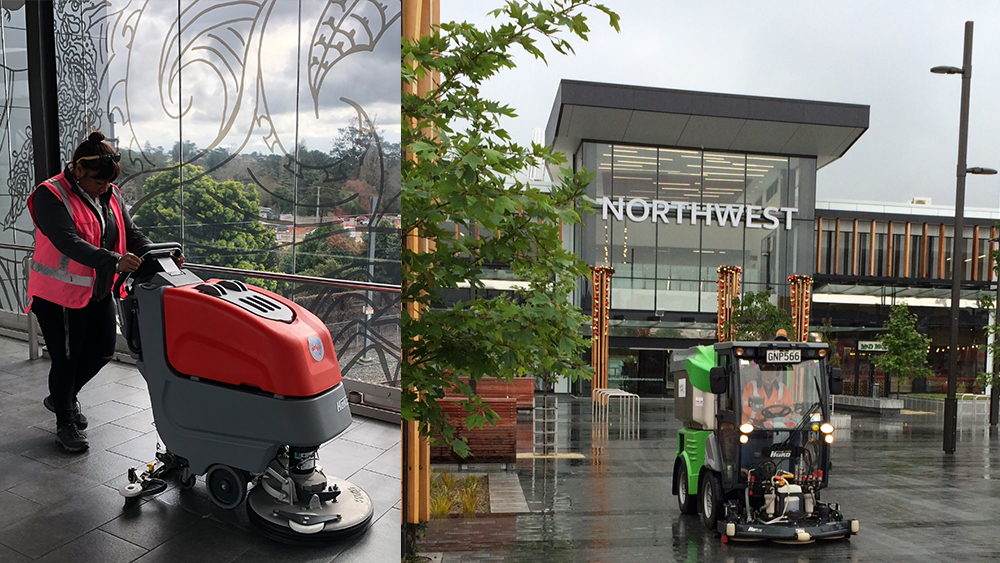Hard surface cleaning is exactly what it says on the tin: the commercial cleaning of any ‘hard’ surfaces, including concrete, asphalt, paver stones, etc. If they have high pedestrian and vehicle traffic, these areas will gather dirt, grime, grease, gum, vegetation and moss residue that needs to be removed regularly. They are also prime targets for graffiti.
We use a range of equipment to get the best results with hard surface cleaning. Using the wrong equipment can result in not only a bad look (stripes, blotches or an uneven clean), but can also damage the surface or the substrate (pitting of wooden surfaces, removal of paving lock, substrate dampness or flooding), resulting in additional maintenance in the future. Assessing the surface first is paramount, then we can determine whether to use sweeping, scrubbing or pressure cleaning (cold water or steam to clean), whether low or high pressure will be best, and any chemicals to use.
For commercial car parks and large surface areas, we often use rotor wash cleaning, which is when water (hot or ambient temperature) is pumped at high pressure through nozzles that spin at high speed. Oil stains from parked vehicles become more visible if they are left to penetrate porous surfaces like concrete, so we scrub affected areas with a penetrating degreaser and allow time for the product to draw absorbed oils to the surface before using low-pressure steam to loosen the material. And because the environment is so important to us, we protect our waterways at the same time, by covering nearby drains and where possible using a commercial scrubber or vacuum to remove harmful runoff from a site. We save water too, with this sort of cleaning, especially in Auckland where there’s a water shortage, by using non-potable water wherever possible and carrying it into sites.
With surfaces that have constant exposure to the elements, we recommend an intensive full clean at least once a year and a wet mechanical scrub every two to three months to keep on top of moss, mould, algae and lichen.

